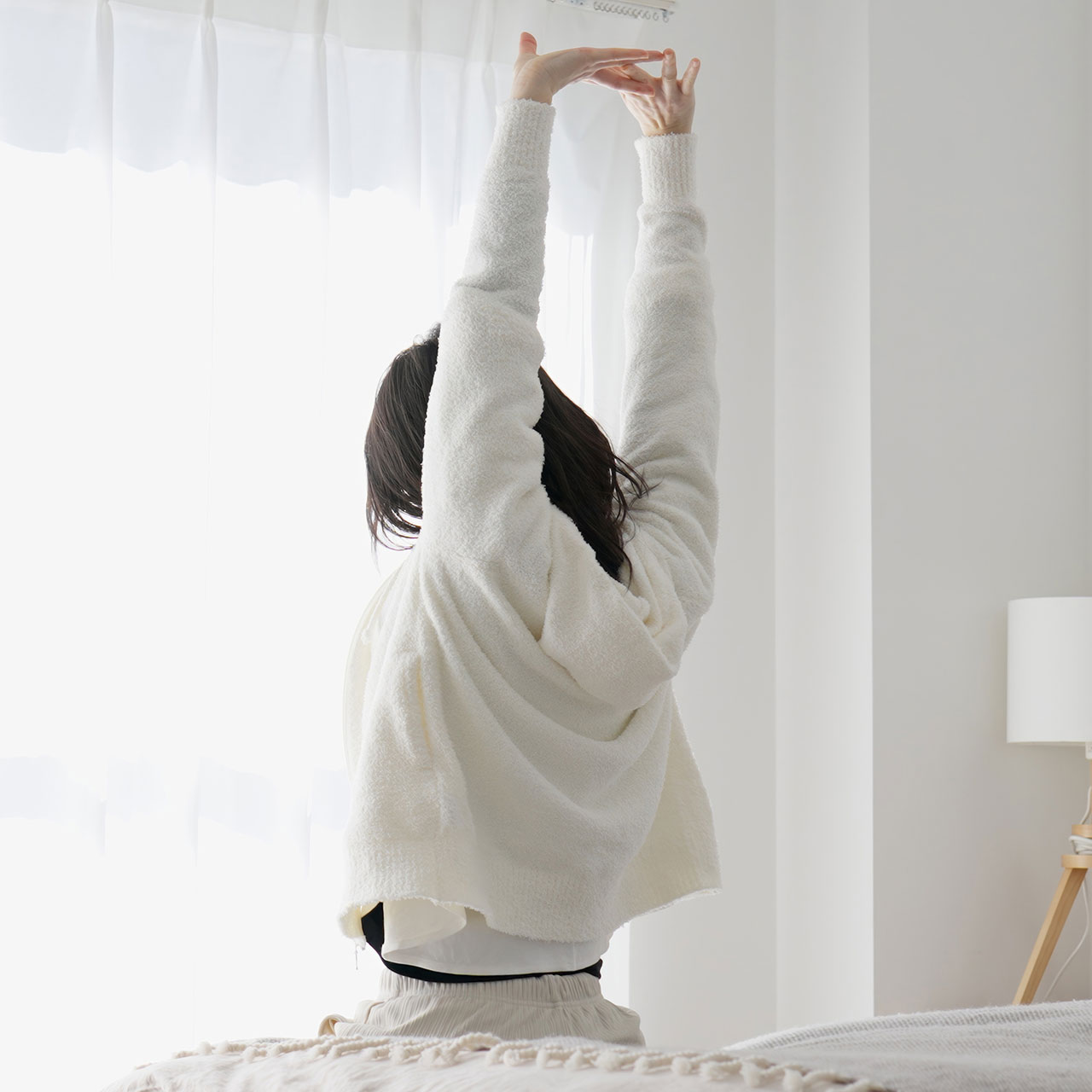This is an archived article and the information in the story may be outdated. Please check the time stamp on the story to see when it was updated last.
Creating a healthy lifestyle means enforcing positive habits in all facets of your day from morning to night. While eating well and keeping a balanced diet is essential for achieving weight loss, there are other habits which can also have a significant impact on your overall well being and can stand in the way of achieving your health goals when done regularly.
People often focus on breakfast and the morning time as being the most important for weight loss, but taking a good look at your evening routine can also help to pinpoint why you may be struggling with feeling good in your body. If you feel as though you’ve been doing everything right and are following a healthy eating plan, there’s one surprising factor which could be making more of an impact on your weight loss journey than you may think.


It’s no secret that spending hours in front of a screen is not ideal for your health, but did you know that watching excess amounts of television at night could actually be the one thing standing in the way of successfully achieving weight loss? Good quality sleep is essential for seeing the positive impact of your diet, and excess screen time in the evening can impede on getting good rest, even limiting the calories you may be burning throughout the day.
“Watching TV isn’t just associated with a more sedentary lifestyle but watching too much of it before bedtime may in fact contribute to some weight gain and disrupted sleep,” warns Dr. Macklin E. Guzmán, DHSc, and Chief Science Officer for Medi-Weightloss. “Researchers have found that by simply cutting TV time in half, there is an increased daily calorie burn of approximately 120 extra calories per day. This may not sound like a lot of calories but spread out over a year it accounts for approximately 12 pounds.”
Your television screen emanates blue light which has been known to disrupt your circadian rhythm and may make it more difficult to fall asleep at night. The less sleep you get, the more your waking hours will be impacted and this will significantly reduce your ability to make healthy choices throughout the day. “Watching too much TV prior to falling asleep may also contribute to your quality of sleep too. It may take your body more time to fall asleep and cut back your deep sleep cycles and may even contribute to insomnia,” warns Guzmán.
If your sleep cycles are affected by your screen use before bed, you may suffer from exhaustion during the day and lean into a more sedentary lifestyle which is not apt to help you reach your weight loss goals. In addition, a sedentary lifestyle can also exacerbate existing health struggles, further playing into the unhealthy habits you’re working to shed.

If you’re invested in your nighttime television routine and that is the only time you have to catch up on your shows this can seem rather limiting, but Guzmán explains that you don’t necessarily have to entirely cut out television from the evening in order to see better results in your body. Instead, focusing on watching television in moderation and limiting your screen time to one hour at night that is not right before you go to sleep will make a major impact on your well being in the long run. Rather than watch TV, consider doing some light exercise before bedtime such as a brisk walk or some gentle yoga to prime your body for sleep.
“It was thought that working out prior to bed can make it more difficult to get a good night's sleep; however, new research has challenged this notion,” explains Guzmán. “A study published in Sports Medicine suggests that you can exercise in the evening if you avoid vigorous activity for at least one hour prior to bedtime. The researchers found that those individuals who did work out prior to bed fell asleep faster and spent more time in deep sleep.”
Replacing your unhealthy habits with more positive ones such as light exercise or other activities like reading, listening to a podcast, or journaling will allow for you to be more successful in reaching your weight loss goals in ways completely unrelated to food. While healthy eating and a balanced diet is essential for seeing the changes you’re looking for in your body, creating a bedtime routine that is not dependent on screen time will ultimately allow you to feel better throughout the day, promoting a more active lifestyle. This will also help you to burn more calories and create a deficit without leaning into a sedentary state.
Remember, you can still watch television in the evening, but be smart about how long you choose to do this activity for, and make sure not to get sucked into the screen right before you plan to get some shut eye.


























